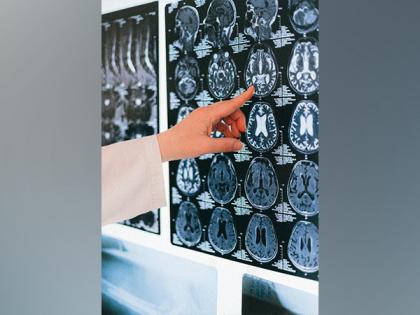New research shows our brains use quantum computation
By ANI | Published: October 19, 2022 02:57 PM2022-10-19T14:57:31+5:302022-10-19T20:30:28+5:30
Scientists from Trinity College Dublin have modified a concept created to demonstrate the presence of quantum gravity to examine the human brain and its functioning and come to the conclusion that our brains might use quantum computation.

New research shows our brains use quantum computation
Scientists from Trinity College Dublin have modified a concept created to demonstrate the presence of quantum gravity to examine the human brain and its functioning and come to the conclusion that our brains might use quantum computation.
The correlation between the measured brain functions and conscious awareness and short-term memory function suggests that quantum processes are also a part of cognitive and conscious brain functioning.
If the team's findings can be verified, which will probably need highly sophisticated multidisciplinary methods, it will improve our general understanding of how the brain functions and perhaps how it might be preserved or even repaired. They might potentially work to develop even more sophisticated quantum computers by discovering novel technologies.
The research paper that was recently released in the Journal of Physics Communications was co-authored by Dr Christian Kerskens, the head physicist at the Trinity College Institute of Neuroscience (TCIN). He said, "We adapted an idea, developed for experiments to prove the existence of quantum gravity, whereby you take known quantum systems, which interact with an unknown system. If the known systems entangle, then the unknown must be a quantum system, too. It circumvents the difficulties to find measuring devices for something we know nothing about."
He added, "For our experiments, we used proton spins of 'brain water' as the known system. 'Brain water' builds up naturally as fluid in our brains and the proton spins can be measured using MRI (Magnetic Resonance Imaging). Then, by using a specific MRI design to seek entangled spins, we found MRI signals that resemble heartbeat-evoked potentials, a form of EEG signals. EEGs measure electrical brain currents, which some people may recognise from personal experience or simply from watching hospital dramas on TV."
The researchers think they were only able to discover electrophysiological potentials--such the heartbeat-induced potentials--because the nuclear proton spins in the brain were entangled. Normally, electrophysiological potentials like these cannot be detected using MRI.
Dr Kerskens added: "If entanglement is the only possible explanation here then that would mean that brain processes must have interacted with the nuclear spins, mediating the entanglement between the nuclear spins. As a result, we can deduce that those brain functions must be quantum.
Because these brain functions were also correlated to short-term memory performance and conscious awareness, it is likely that those quantum processes are an important part of our cognitive and conscious brain functions."
He added, "Quantum brain processes could explain why we can still outperform supercomputers when it comes to unforeseen circumstances, decision-making, or learning something new. Our experiments performed only 50 metres away from the lecture theatre, where Schrodinger presented his famous thoughts about life, may shed light on the mysteries of biology, and on consciousness which scientifically is even harder to grasp."
( With inputs from ANI )
Disclaimer: This post has been auto-published from an agency feed without any modifications to the text and has not been reviewed by an editor
Open in app